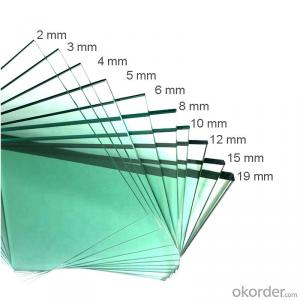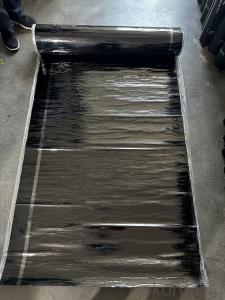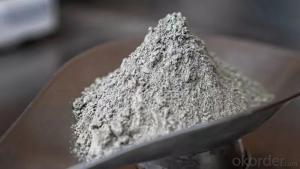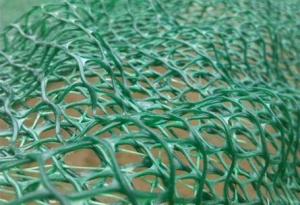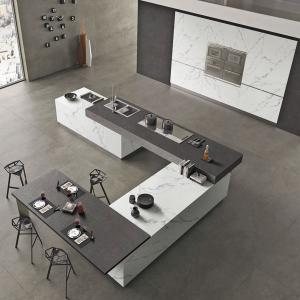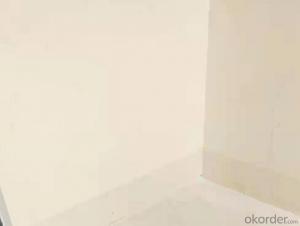SBS-Modified Bitumen Waterproof Membrane with Polyester Fiber and PE Film Type I,4mm
- Loading Port:
- Tianjin
- Payment Terms:
- TT OR LC
- Min Order Qty:
- 1000 m²
- Supply Capability:
- 500000 m²/month
OKorder Service Pledge
OKorder Financial Service
You Might Also Like
SBS-PYPE is a waterproofing modified bitumen base sheet consisting of styrene-butadiene-styrene (SBS) modified asphalt reinforced with polyester fiber covering with polyethylene surfacing. There have two kinds of thickness: 3 mm, 4 mm。
We have two kinds of type in our company。They are I type and II type。They have differentt kinds of low temperature flexibility。
This type is 4mm thickness,type I。
If you want to know more about us,call the salesman of CNBM International Corporation (CNBM International) 。
CNBM INTERNATIONAL CORPORATION
Address:17th Floor, NO.4 Building, Zhuyu Business Center, Shouti South Road,Haidian District, Beijing,China
Post Code:100048
Tel:(86-10)68796888
Fax:(86-10) 68796668
Email:marketing@okorder.com, hr@okorder.com
- Q:Are there any specific considerations for installing a waterproofing membrane on concrete surfaces?
- Yes, there are several specific considerations when installing a waterproofing membrane on concrete surfaces. Firstly, it is important to ensure that the concrete surface is clean, dry, and free from any loose particles or contaminants. Proper surface preparation is crucial to allow for proper adhesion of the membrane. Secondly, it is essential to choose a suitable waterproofing membrane that is specifically designed for use on concrete surfaces, as different materials may have different compatibility and performance characteristics. Additionally, the correct application technique and thickness of the membrane should be followed as per the manufacturer's instructions. Finally, it is important to consider factors such as expansion joints, cracks, and structural movement, as these can affect the overall effectiveness and durability of the waterproofing system.
- Q:Can a waterproofing membrane be used on precast galvanized surfaces?
- Precast galvanized surfaces can benefit from the use of a waterproofing membrane. This membrane serves as a safeguard against water infiltration and can be applied to various surfaces, including precast galvanized ones. By preventing water from seeping into the surface, the membrane safeguards the underlying structure from moisture damage. However, it is crucial to prepare the precast galvanized surface adequately before applying the membrane. This involves removing any loose or flaking galvanized coating to ensure proper adhesion of the membrane. Furthermore, it is recommended to consult the manufacturer or supplier of the waterproofing membrane to guarantee compatibility with galvanized surfaces and to follow their recommended application guidelines for optimal outcomes.
- Q:Can a waterproofing membrane be used for wastewater facilities?
- Yes, a waterproofing membrane can be used for wastewater facilities. Waterproofing membranes are specifically designed to protect structures from water damage, including from wastewater. These membranes are typically made of durable materials such as PVC, EPDM, or TPO, which have excellent resistance to water and chemicals. Wastewater facilities require robust protection against the corrosive and potentially damaging effects of wastewater. Installing a waterproofing membrane can help prevent water infiltration, which can lead to structural damage, deterioration, and contamination of surrounding areas. Waterproofing membranes provide a barrier that prevents water and moisture from penetrating the facility's walls, floors, and foundations. This helps to maintain the integrity of the structure, prevent leaks, and protect against corrosion caused by chemicals present in wastewater. In addition to protecting against water and chemical damage, some waterproofing membranes also offer resistance to UV rays, high temperatures, and freeze-thaw cycles, which are important considerations for wastewater facilities located in extreme weather conditions. Overall, using a waterproofing membrane in wastewater facilities is a reliable and effective solution to ensure long-term protection against water damage, maintain the structural integrity, and enhance the durability of the facility.
- Q:Can a waterproofing membrane be used in hot climates?
- Certainly, hot climates are indeed suitable for the utilization of a waterproofing membrane. In fact, it is imperative to employ a waterproofing membrane in regions characterized by elevated temperatures and strong sunlight. The purpose of this membrane is to safeguard against water infiltration, which is of utmost importance in order to avert any harm to structures such as roofs, balconies, or basements. Furthermore, a top-notch waterproofing membrane is specifically engineered to endure the impacts of temperature fluctuations and UV radiation, guaranteeing its long-lastingness and efficacy even amidst scorching climates. Consequently, it is highly recommended to employ a waterproofing membrane in hot climates to ensure the resilience and integrity of the structures to which it is applied.
- Q:Can a waterproofing membrane be used for water treatment plants?
- Indeed, water treatment plants can benefit from the utilization of waterproofing membranes. These specialized membranes are specifically engineered to impede the flow of water, making them an ideal solution for safeguarding against water seepage in diverse structures, including water treatment plants. By applying these membranes to various sections of the facility, such as tanks, reservoirs, pipes, and basements, infiltration of water can be effectively prevented, thus shielding the infrastructure from potential harm. Furthermore, the implementation of waterproofing membranes aids in preserving the integrity of the water treatment process by ensuring that water remains confined within designated areas and does not permeate the surrounding soil or structures.
- Q:Can a waterproofing membrane be used in swimming pools?
- Indeed, the utilization of a waterproofing membrane in swimming pools is widespread. To avert water leakage, it is a customary practice to incorporate waterproofing membranes during the construction or refurbishment of swimming pools. These membranes possess an exclusive design that enables them to function as a barrier against water infiltration, guaranteeing the pool's impermeability and leak-free condition. Typically, these membranes are crafted from robust materials like PVC, EPDM, or polyurethane, which exhibit resistance to water, chemicals, and UV rays. Furthermore, their flexibility allows them to effortlessly conform to the pool's shape and contours, providing a seamless and enduring waterproofing solution.
- Q:Can a waterproofing membrane be used for airport runways?
- Yes, a waterproofing membrane can be used for airport runways. Airport runways are subjected to a significant amount of wear and tear due to heavy aircraft traffic, weather conditions, and potential fuel spills. A waterproofing membrane can serve as a protective barrier against water infiltration, which can lead to runway deterioration and damage. It can also prevent the penetration of fuel, oil, and other chemicals that can weaken the runway structure. Additionally, a waterproofing membrane can help to prolong the lifespan of the runway by reducing the effects of freeze-thaw cycles and preventing the formation of cracks and potholes. Overall, the use of a waterproofing membrane can enhance the durability and safety of airport runways, ensuring smooth operations and minimizing maintenance costs.
- Q:What is BSB waterproofing membrane
- Scope of application: 1. Polyester Felt-based elastomer modified asphalt waterproofing membrane for industrial and civil construction of the roof and underground waterproofing works. 2. Glass fiber reinforced polyester mattress base coil is suitable for mechanical fixed single layer waterproof, but through the wind load test. 3. Fiberglass mattresses are suitable for structural roofs and underground waterproofing works; 4. Exposure to the use of the upper surface of the insulating material for the opaque mineral pellets of the waterproofing membrane. 5. Underground engineering waterproofing should be used surface insulation material for the fine sand of the waterproofing membrane.
- Q:Can a waterproofing membrane be used on brick surfaces?
- Yes, a waterproofing membrane can be used on brick surfaces. Waterproofing membranes are designed to provide a barrier against water penetration, and they can be applied to various surfaces including brick. Applying a waterproofing membrane on a brick surface can help prevent water damage, such as moisture seeping into the brick and causing deterioration or mold growth. It is important to choose a waterproofing membrane that is compatible with brick and follow the manufacturer's instructions for proper application. Additionally, it is recommended to consult with a professional to ensure the correct membrane is selected and applied according to the specific needs and conditions of the brick surface.
- Q:Can a waterproofing membrane be used on chrome surfaces?
- A waterproofing membrane can be used on chrome surfaces, but it may not be necessary or recommended. Chrome surfaces are typically already resistant to water and moisture due to their inherent properties and protective coatings. These coatings provide a barrier against corrosion and prevent water damage. Applying an additional waterproofing membrane on top of a chrome surface may not provide any added benefits and could potentially interfere with the appearance and functionality of the chrome. It is always best to consult the manufacturer or a professional in the field to determine the appropriate treatment for chrome surfaces.
1. Manufacturer Overview |
|
|---|---|
| Location | |
| Year Established | |
| Annual Output Value | |
| Main Markets | |
| Company Certifications | |
2. Manufacturer Certificates |
|
|---|---|
| a) Certification Name | |
| Range | |
| Reference | |
| Validity Period | |
3. Manufacturer Capability |
|
|---|---|
| a)Trade Capacity | |
| Nearest Port | |
| Export Percentage | |
| No.of Employees in Trade Department | |
| Language Spoken: | |
| b)Factory Information | |
| Factory Size: | |
| No. of Production Lines | |
| Contract Manufacturing | |
| Product Price Range | |
Send your message to us
SBS-Modified Bitumen Waterproof Membrane with Polyester Fiber and PE Film Type I,4mm
- Loading Port:
- Tianjin
- Payment Terms:
- TT OR LC
- Min Order Qty:
- 1000 m²
- Supply Capability:
- 500000 m²/month
OKorder Service Pledge
OKorder Financial Service
Similar products
New products
Hot products
Related keywords













